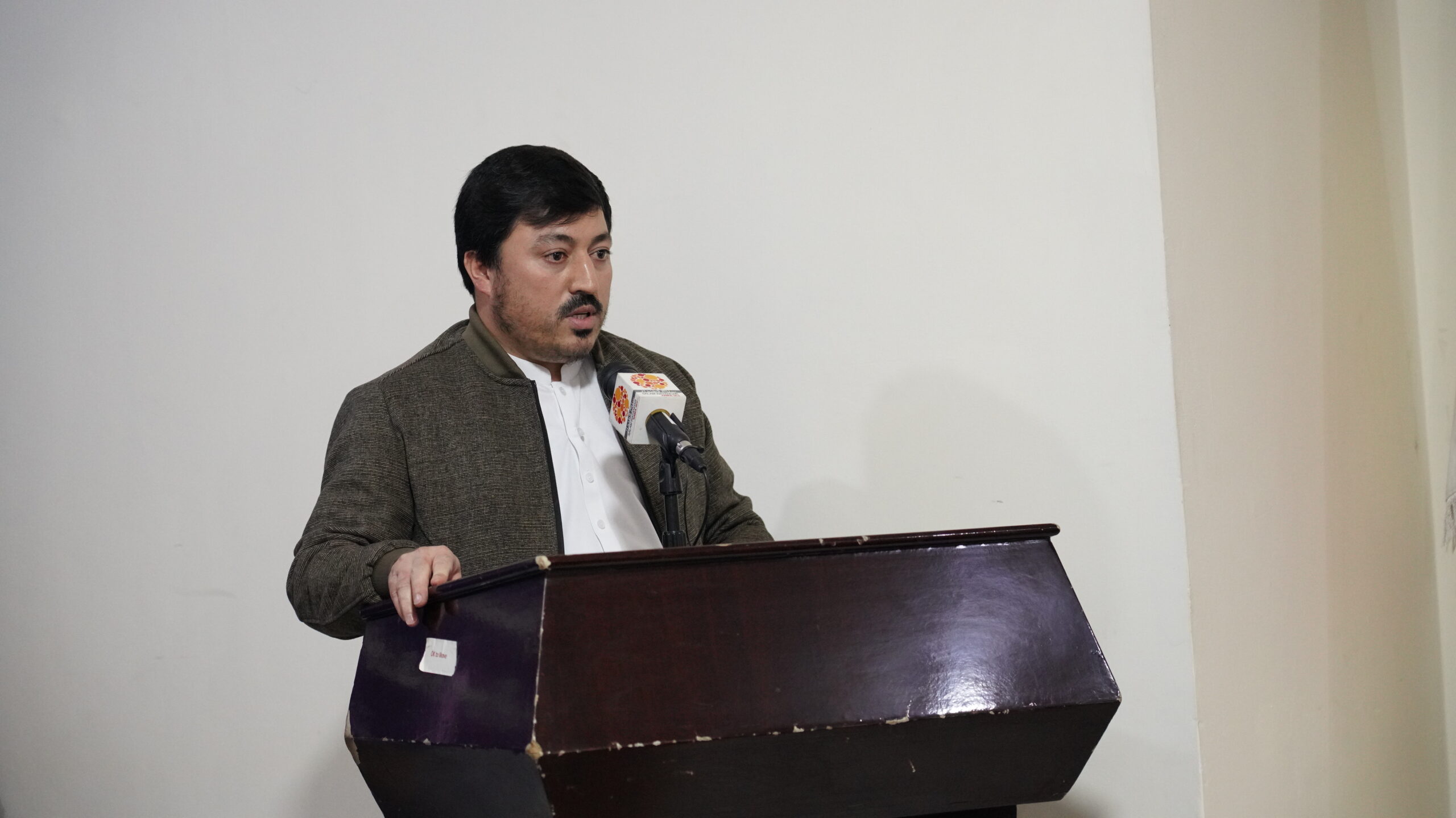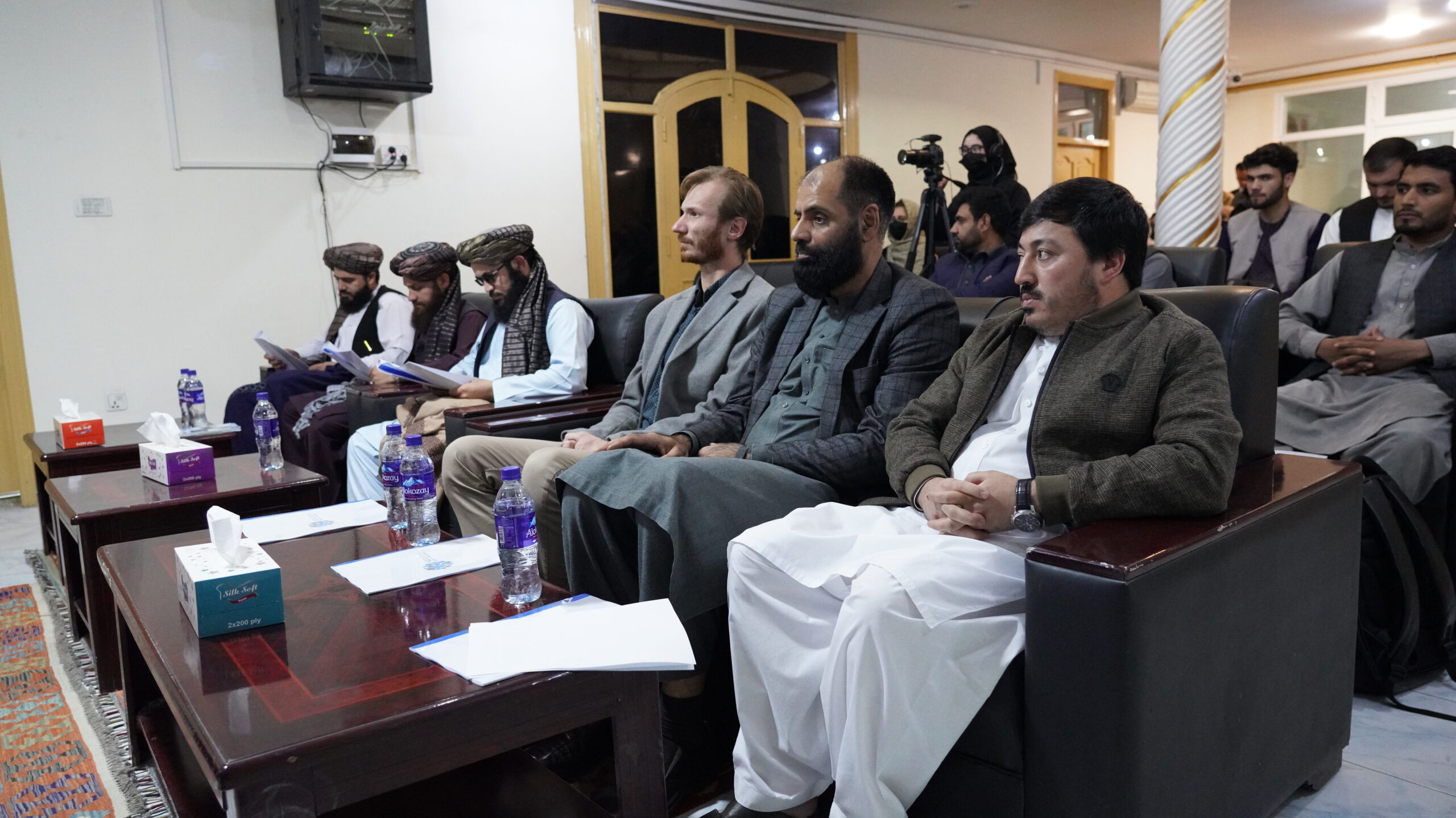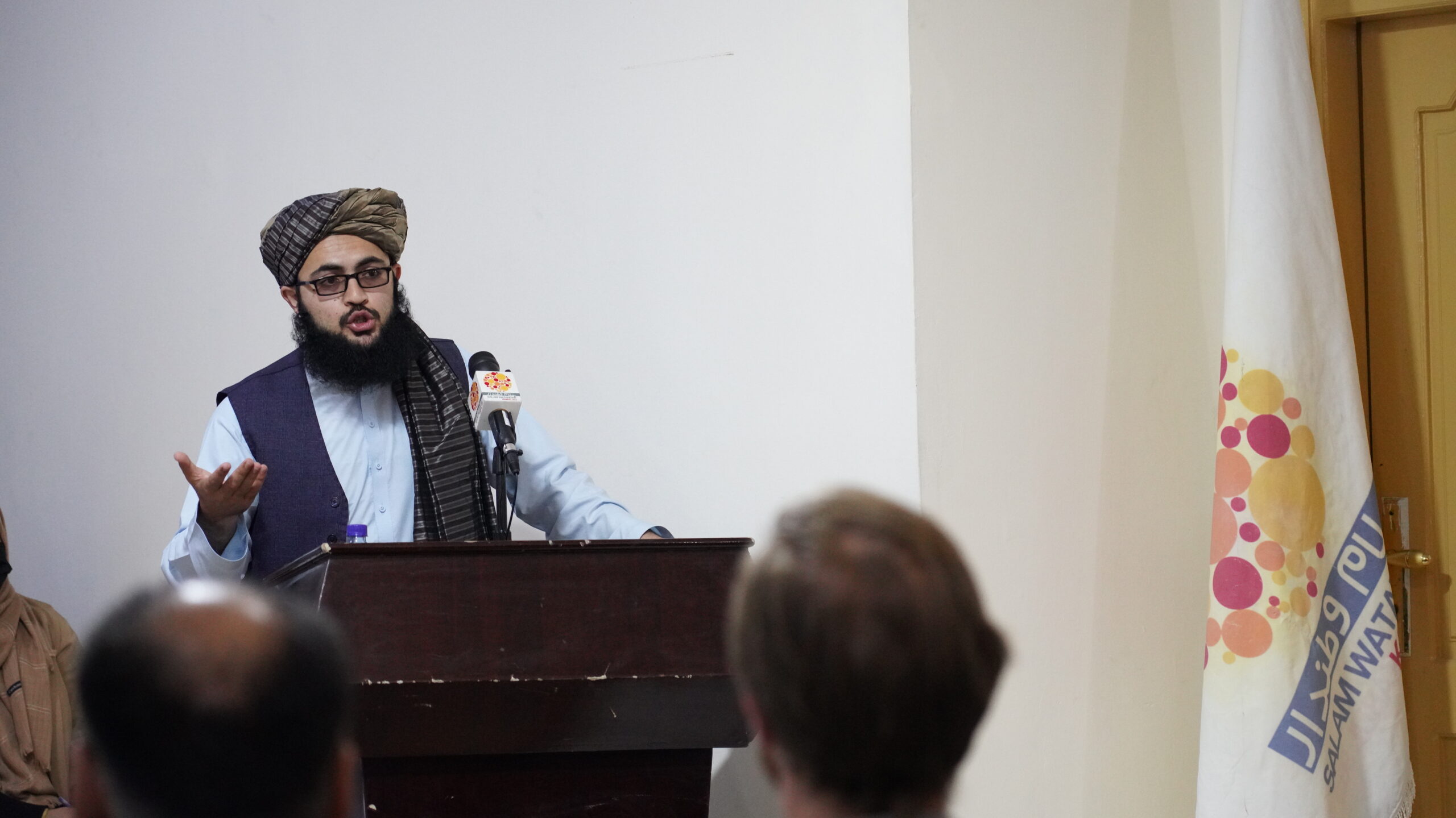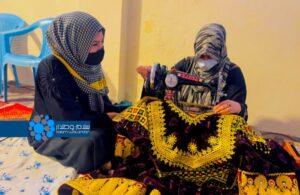KABUL (SW) – Salam Afghanistan Media Organization (SAMO) has held an engaging “A Look at the Situation of Youths in Afghanistan” conference at the premises of Salam Watandar Radio Network head office in Kabul.
The event was part of the “Omid” (hope) program, which brought together representatives from the Ministries of Economy, Labour and Social Affairs, and Information and Culture and others to evaluate the state of youths in Afghanistan. The discussion focused on the challenges faced by youths in Afghanistan such as issues related to employment, education, social, and legal difficulties, as well as, the presentation of practical solutions to address these challenges.
Officials from Salam Watandar shared the findings of the “Omid” program’s research, which is specifically dedicated to the issues young people face in Afghanistan.
Noor Mohammad Hashemi, Deputy Director of Salam Afghanistan Media Organization, explained that after interviewing 4,436 youths across the country, the “Omid” program identified the most significant challenges, obstacles, and potential solutions regarding employment opportunities for young people.
Hashemi added: “Young people today are facing more challenges than ever. Despite being the largest segment of the workforce in the country, they encounter numerous restrictions and barriers. In response, Salam Watandar launched the ‘Omid’ program to address these issues and propose solutions for young people.”

Mr. Hashemi stressed the need to create sustainable opportunities for youths within Afghanistan, instead of relying on illegal migration and the brain drain caused by other countries benefiting from Afghanistan’s educated workforce. Listening to the challenges of young people and developing comprehensive solutions for them is crucial, he said.
Meanwhile, the program manager at Salam Watandar, who also participated in the meeting, said that after producing 29 investigative reports on the challenges facing young people, it has been founded that educational and employment opportunities have been severely limited for youths across the country.
“Results from our research show that 60% of youths eligible for work are currently unemployed. Many young people are turning to online work, but they face significant obstacles, such as high internet costs, poor internet quality, and limited access to internet services. Although young people are eager to find work, government employment opportunities do not fully meet their needs, and they are also struggling with economic challenges and a lack of confidence,” the manager said.
SAMO management said that the primary goal of the event was to inspire young people and provide them with viable educational and employment solutions.

Bashir Hatif, head of the Afghanistan Journalists Federation (AJF), also spoke at the event, highlighting the need for comprehensive, well-planned solutions from the government to tackle youth unemployment.
He pointed out: “The number of educated young people has decreased because many are leaving the country. Why are they leaving? We have not been able to manage this situation effectively. Why is the money spent on their education here, only for them to go abroad? This issue requires management. They should be working here and investing their energies here, rather than sending their money abroad. This is a problem of insufficient investment.”
On the other hand, officials from the Islamic Emirate assured that they are working in collaboration with media outlets and national and international partners to create more educational and employment opportunities for young people.
Abdul Latif Nazari, Deputy Minister of Economy, stated: “Young people play an essential role in the economy. We are trying to create more job opportunities, and we recognize that youths make up the majority of the workforce in the country. They have the potential to contribute to the scientific and economic development of Afghanistan, and we are committed to supporting their role in raising societal awareness.”
Khobaib Ghofran, spokesperson for the Ministry of Information and Culture, also mentioned that the ministry has provided educational opportunities to nearly 30,000 individuals facing economic difficulties over the past year, with support for university-level education and training centers. “We are working to provide more job opportunities for youths in various fields,” he said.

In conclusion, officials from Salam Watandar and the representatives of the de-facto government emphasized the need for coordinated efforts among private, public, and media institutions to identify the root causes of the challenges facing youths and to implement comprehensive solutions in this area.






